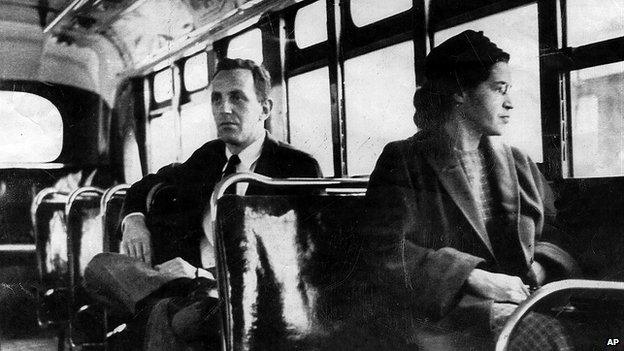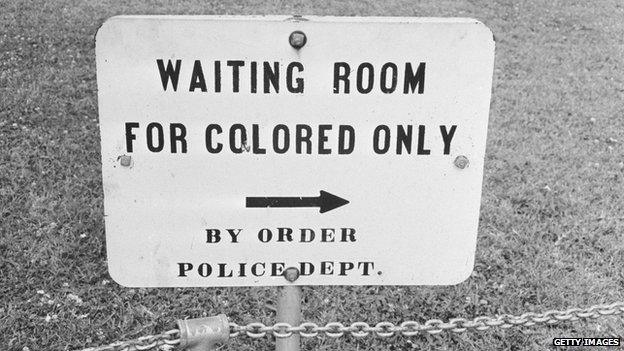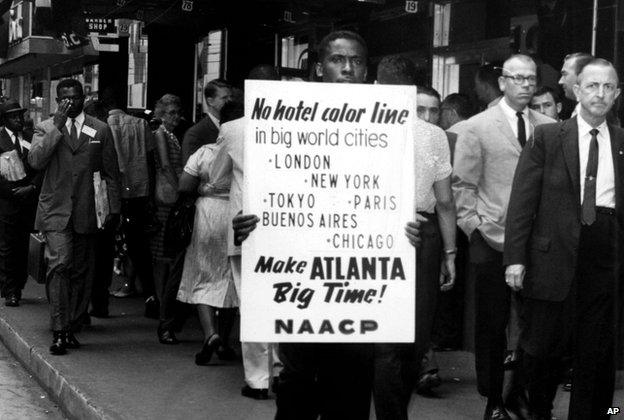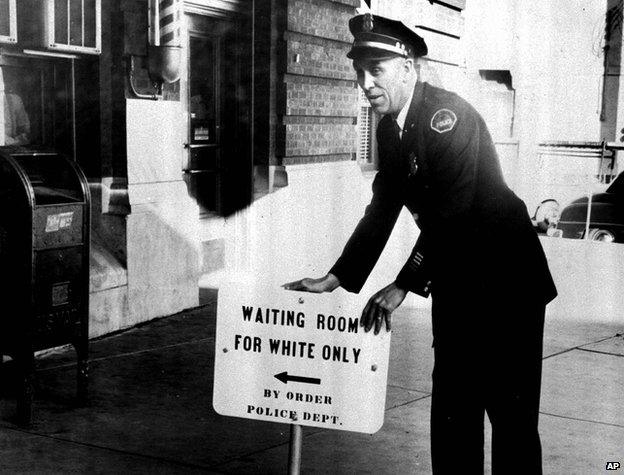Warning: Why using the term 'coloured' is offensive
- Published

Benedict Cumberbatch has apologised after using the term "coloured" to describe black actors.
He was on a US talk show, explaining that there are more opportunities for black actors in Hollywood than the UK.
In a statement he said: "I can only hope this incident will highlight the need for correct usage of terminology that is accurate and inoffensive."
He said the most "shaming aspect" was he was talking about "racial inequality" at the time of his error.
So why is the term considered so offensive?
'Every human'

Rosa Park's refusal to give up her seat on a bus helped to bring an end to Jim Crow
In the UK the term is, at best, seen as old fashioned and "something your gran might say".
But it's also regarded as a highly offensive racial slur which recalls a time when casual racism was a part of everyday life.
In the US, because of the country's recent era of racial segregation, it is among the most offensive words for describing a black person.
"[It] was used to describe anybody who was not white, which may imply that to be white is 'normal' or default," says the charity Show Racism the Red Card.
"If we consider it, every human has a skin colour, so technically we are all coloured."
Jim Crow

Historically, the word is associated with segregation, especially in the US, where black people where kept separate from white people - on public transport, or at drinking fountains which were described as "coloured-only" for example.
These rules - known as "Jim Crow laws" - happened mainly in the states in the south of the US, from the 1870s until the 1960s.
The phrase Jim Crow originated from a song-and-dance character of the 1800s. In the stage show a white actor "blacked up" to play the role of an African slave. No-one is quite sure how this name became associated with the racial hierarchy the US adopted.
In part because of this association, using the phrase is seen as contributing racist behaviour, according to Show Racism the Red Card.
It was also seen as an acceptable word to use in much of the UK until the 1960s and 1970s.
'Much better'

There are places in the world where "coloured" is used without offence - for example in South Africa, where it refers to people who have multiple heritages.
Founded in 1909, the NAACP (National Association for the Advancement of Coloured People) is a huge organisation in the US; it seeks to end discrimination on the basis of race.
It is "much better" to use the word black, says Show Racism the Red Card.
"There are lots of rumours that cause people to feel uncomfortable about saying black, but as a descriptive term it is absolutely fine, and is a term that has been chosen by and is used by black people."
'Misleading term'

According to the British Sociological Association, there are other words and phrases used to describe race, skin colour and heritage which could be found offensive however.
"Halfe-caste" is a "dated, racist term which should be avoided", they explain.
"Mixed race is a misleading term since it implies that a 'pure race' exists."
They advise alternatives including "mixed parentage" and "dual heritage".
Follow @BBCNewsbeat, external on Twitter, BBCNewsbeat, external on Instagram and Radio1Newsbeat, external on YouTube